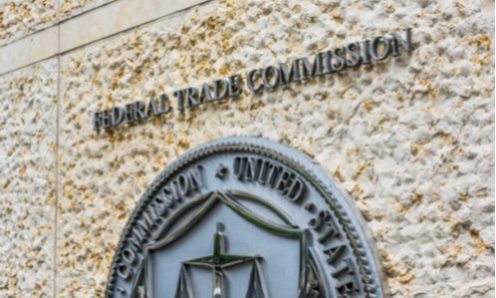The US Federal Trade Commission and Surescripts can’t agree on what penalty should be imposed on the health information network to settle a federal antitrust lawsuit, according to the agency’s court filing on Monday that blasted the company’s market conduct.
The FTC sued Surescripts in 2019 for alleged anticompetitive practices in the electronic prescribing market. Healthcare providers use Virginia-based Surescripts’ network to electronically send prescriptions to pharmacies and to contact insurance companies to determine a patient’s benefits eligibility.
The agency accused Surescripts of using “loyalty contracts” to thwart competition, a claim the company denies. The sides have clashed over what relief might be appropriate to resolve the lawsuit.
“The reason the case is not settled is that the parties do not currently agree on the relief that is needed to protect the public and redress the anticompetitive harm,” FTC lawyer Tanya O’Neil told U.S. District Judge John Bates in a Washington, D.C., federal court filing.
An FTC spokesperson did not immediately respond to a request for comment, and a lawyer for Surescripts, Latham & Watkins partner Amanda Reeves, who leads the firm’s antitrust practice, did not immediately return a similar request.
The FTC on Monday told Bates that the agency has a “mountain of evidence” alleging antitrust violations against Surescripts and that the company “constructs an alternate reality” in which “customers had no interest in competition, and its competitors failed due solely to their own defects.”
Surescripts’ lawyers argued in a filing on Monday that the FTC “does not put forth any direct evidence of monopoly power.”
The company said its “loyalty provisions with its customers did not foreclose competition in the market and did not cause any anticompetitive effects such as higher price and reduced output.”
The agency’s complaint seeks an injunction barring alleged exclusionary practices in the e-prescription market. Last year, Bates dismissed without prejudice the FTC’s request for monetary relief, after the U.S. Supreme Court curbed the power of the agency to directly obtain court-ordered monetary relief under a key provision of federal law.
Want more news? Subscribe to CPI’s free daily newsletter for more headlines and updates on antitrust developments around the world.

